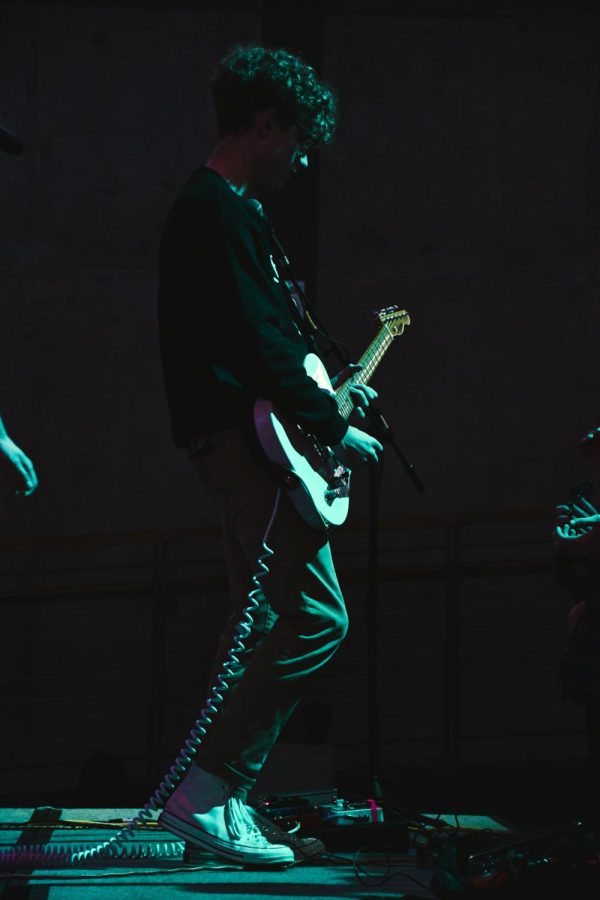On March 26, Oakland University professor Bret Hoag hosted a guitar recital in the Varner Recital Hall, featuring several of his students from his classes. From single performances to trios, quartets and quintets, each performer showcased what they had learned through their music classes.
Mat Keitz performed several pieces throughout the recital, both in a solo and ensemble setting. Keitz explains the main differences that come from playing in a group and on your own.
“You really have to lock in with the people around you musically,” Keitz said. “When you’re playing solo, you have a lot more freedom with bending time and your rhythm, but when you’re playing with other people, it’s really important and necessary to be locked in and synced with one another. It takes a different kind of practice.”
Playing in a group can be a struggle, whether it is a duet or a quintet. Keitz, who played a piece called “Spin” as part of a quartet, explains one of the main hurdles that comes with playing in a larger group.
“As guitar players, we play so much alone, so playing with other people is sometimes a challenge for us,” Keitz said. “Even if we have the right notes, it can be hard to get things synced. That piece we played [Spin] was in an odd meter, so the subdivisions are different based on the measure. It was just challenging getting everything locked in and synced.”
Performing on stage for the first time can be a stressful experience for those at any level, making the process of choosing a song that much more difficult. Keitz explains a helpful tip for new players to feel more comfortable and confident on stage.
“It helps if you’re playing music that you like, or that you can connect with on a spiritual level,” Keitz said. “Then when you’re performing, it’s really nothing more than an extension of who you are. That doesn’t take any effort because it’s just raw creative expression, which humans do every day.”
While many of the performers were music majors, Hoag believes the stage is there for students of any background, including non-majors.
“I think anyone who wants to do it should be able to do it,” Hoag said. “For a major, I think it’s more that they’re gonna eventually make money doing this, so they have to be competitively good. It’s different for every single group and every single person, but I think everyone should be able to perform.”
Hoag explains his view on why students should experiment with an instrument in college, even if it is outside of their major.
“Your life will be more than whatever your career is, and college is a great place to explore those things,” Hoag said. “You’re probably never going to be around world-class music faculty, so take a guitar class, or take a theory class, or take something that interests you. No one’s gonna make fun of you if you’re not great at it since it’s all about learning.”
For those interested in learning more about OU’s non-major offerings for music, please visit the School of Music, Theatre and Dance’s (SMTD) webpage.






